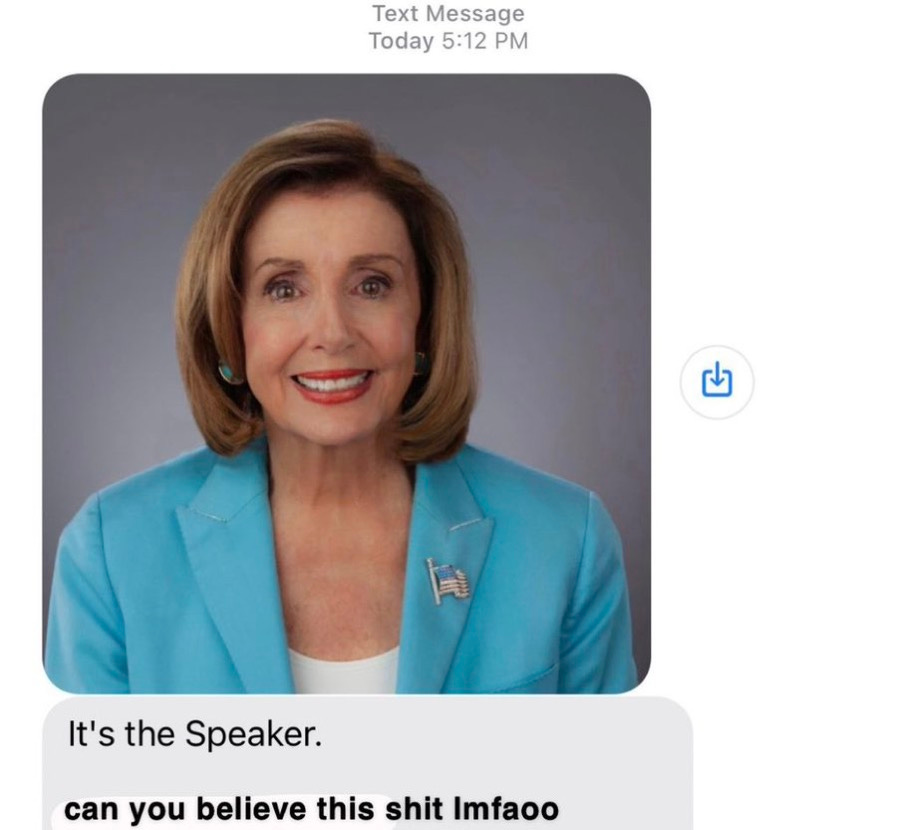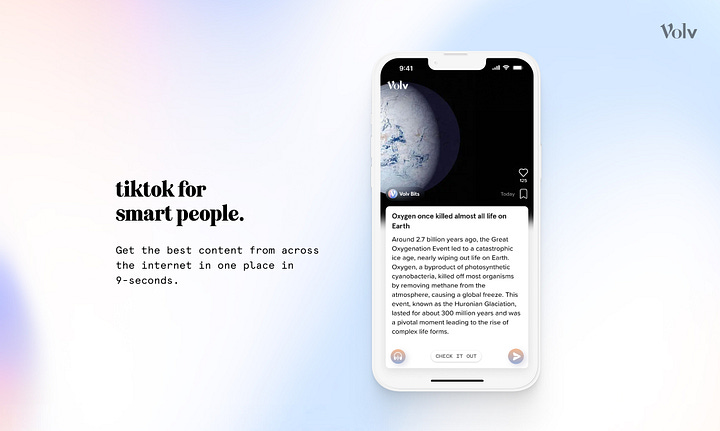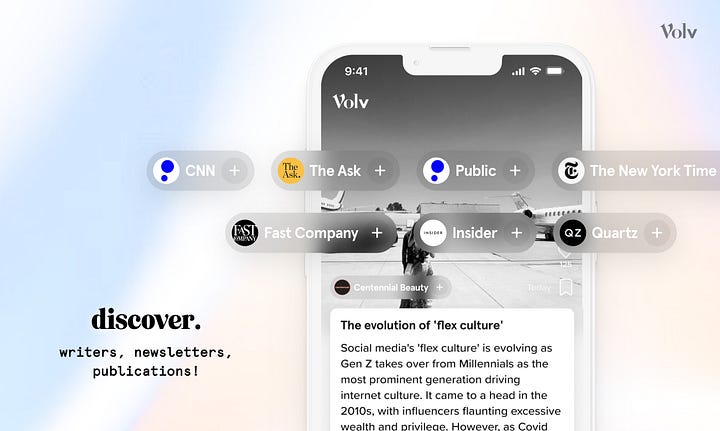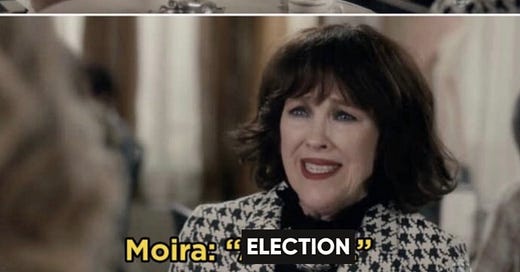All My Homies Are Registered to Vote
Commentary on this year's election and the process of switching my voter registration
Unfortunately, this post is too long to appear in full in your inbox. I don’t know where it will cut off in the email version, but it will be available online. See you there!!!
There are currently 64 days between today and Election Day. For reference, June 30th was 64 days ago—Joe Biden pulled out of the presidential race on July 21st and Donald Trump’s assassination attempt was on July 13th—so do with that what you will.
The outcome of this election is already being debated at the same time that Americans are trying to keep up with the never-ending breaking news cycle, learn about state-by-state felon disenfranchisement laws, and understand campaign finance regulations. Voters are grappling with how to convey their beliefs with their ballots, combat misinformation being shouted from the biggest platforms, and switch their registration from Connecticut to New York. That last one is absolutely just about me but, hey, who am I if not a grappling voter?
Today, I wanted to briefly cover some of the discussions I’ve seen online regarding this year’s presidential race, and also share some resources and personal anecdotes to help make your voting journey as easy as it ought to be.
You Know Things Are Bleak When Someone Starts Talking About Bringing Back Things from 2019
Back in 2019, when I first planted the seeds of what E4P would blossom into, I would structure the installments around theoretical questions that I would try to answer with research. I want to address a couple of talking points today, and I realized this vintage tactic might be the best way to achieve my goal. With that said, let’s dive right in:
Things moved so quickly that I forgot to ask: can Joe Biden just hand over the campaign to Kamala Harris like he has? What about all the campaign finances?
Technically, yes, and the logic that determines this is actually the most simple and least dramatic: in all modern elections, presidential and vice presidential nominees have run on a single ticket (think of the yard signs and banners that read Trump-Pence, Obama-Biden, etc.) meaning voters and donors are supporting both candidates when they offer their vote or their money. As the Brennan Center for Justice explains:
Biden’s committee, which was also his principal campaign committee in 2020, has jointly listed Harris in its FEC [Federal Elections Commission] filings ever since she first became his running mate. Once Biden withdrew from the race this year, the committee simply updated its FEC registration to replace Biden with Harris at the top of the ticket.
It is true that FEC regulations and federal statutory law do not address this exact situation—an incumbent vice president running for reelection and then moving to the top of the ticket before having been formally renominated at her party’s convention. But the commission has never suggested that an incumbent vice president must at any point establish her own campaign committee, let alone provided specific guidance for when doing so might be necessary. All incumbent presidential and vice-presidential candidates in recent memory have run for reelection together as a single ticket, sharing one committee before and after formal renomination. The Harris campaign is understandably relying on this precedent.
You may have heard the argument that Harris taking over the ticket her name was already on and the funds that were already donated in part to her is a “heist” that is denying Democrats their right to pick their candidate. To be clear: that argument is coming directly from the Trump campaign, so if you’re a displeased Democrat-leaning voter or a never-Trumper who has been repeating this missive, just know where it originated.
If you are a Democrat, a Democrat-leaning, or a never-Trumper voter who is frustrated that there wasn’t an open convention or nomination process, that’s a different issue to address. First, let’s discuss what an open convention actually is and what it would have likely looked like at this year’s DNC.
Why wasn’t there a Democratic primary where we could have picked our next candidate? Why was it just Biden and then Harris?
So there were primaries and registered Democrats did by and large pick Biden and Harris. If you’re asking why other candidates didn’t run against them in the primaries, that’s a different question.
You’d be surprised—given the last eight years—that some precedents in American politics still remain. In 2009, NPR addressed a different version of this question from a reader: “When was the last time, if ever, that a sitting president was not nominated by his party for a second term?”
They explained:
It only happened once to an elected president. That was Franklin Pierce, the 14th president, who was elected as a Democrat in 1852. His pro-Southern sentiments and his policy of failing to lead on the divisive issue of slavery badly hurt his standing with the voters. Especially damaging was his support for the pro-slavery Kansas-Nebraska Act of 1854, which backfired on him as Kansas was overrun by pro-slavery forces, mostly from the slave state of Missouri. The events angered Northerners everywhere and helped lead to the creation of the Republican Party. When Democratic delegates gathered in Cincinnati for their convention in 1856, it was clear that they had had enough of Pierce. James Buchanan, who had been defeated by Pierce for the nomination four years earlier, won the nomination on the 17th ballot (X).1
Incumbent presidents, even those who claimed they only planned to be in office for one term, rarely face primary challenges if ever. We saw a few Republican challengers to a second Trump Administration in 2020 but the likely failure to sway enough support away from a sitting president is largely why this situation is so rare. We hear so many accounts of elected Republicans disparaging Trump in private but never holding him accountable in public. This reluctance and the precedent of not challenging incumbent presidents all boil down to the same thing: if a party is in power, they want to remain in power.

Flipping that back to the Dems and the Biden-Harris ticket, that’s why when there were so many calls for Biden to drop out of the race, there was not another candidate at the ready to replace him save for the person that had been running with him on his ticket. There was not a “first runner-up” from a primary the Democrats could have pivoted to instead, so they picked the current “first runner-up” to the presidency.
Which brings us back to the notion of an open convention.
An open convention is what “happens when there is no set nominee when the convention kicks off…Candidates vying for the nomination would work to convince delegates—who will select the nominee at the convention—to vote for them” (X). Before Biden dropped out of the race, a majority of Democratic delegates had already pledged to him as, again, the incumbent president. Because of that, the Democratic Party had been planning to hold a virtual roll call in which Biden was formally confirmed as the party’s nominee before the convention even started.
As a CBS News article published on July 23rd explains,
a candidate needs to win 1,976 delegates, a majority of pledged delegates, in the first round of voting to lock up the Democratic nomination. Democrats have two types of delegates: Pledged, who must support the candidate voters of their state selected in the primaries and caucuses; and superdelegates, party leaders who are not committed to any candidate and cannot vote on the first ballot at the convention.
Mr. Biden was heading into the convention with nearly 3,900 pledged delegates, but they can now vote for the candidate of their choosing. They do not have to support Harris.
By August 2nd, however, Harris had enough pledged delegates to become the nominee, making an open convention unnecessary.
To anyone who may not be a coconut-headed, Midwest Princess hat-wearing supporter of Kamala Harris, this process might feel a little undemocratic—or, if you’re once again inadvertently regurgitating messaging from the Trump campaign, like an inner-party coup. But historically speaking, the transfer of power from Biden to another candidate went about as seamlessly as we could have hoped.
Wait, what do you mean by that? Is there some weird historical flashpoint in which party officials tried to make nominating a more democratic process but instead kind of made everything a lot more difficult for unprecedented moments in American politics like today?
Funny enough, the reason we have nationwide primaries and are having this conversation today is a result of the last election in which an incumbent president didn’t seek reelection and their vice president ran instead. In 1968, when Lyndon B. Johnson announced that he was not running for another term, Hubert Humphrey had three more months than Harris did to coalesce enough support from his party.
The delegate selection process in 1968 wasn’t as streamlined via primaries as it is today as only 15 states held primaries and pledged support before the official nominating process. By and large, “powerful people and party bosses around the country picked delegates to the conventions. Their delegates then choose the nominee” (X).
Prior to Johnson dropping out of the race, only one candidate—Senator Eugene McCarthy—was willing to run against him in the primary. According to preeminent historical scholar, Wikipedia,
despite growing opposition to Johnson's policies in Vietnam, it appeared that no prominent Democratic candidate would run against a sitting president of his own party. It was also accepted at the beginning of the year that Johnson's record of domestic accomplishments would overshadow public opposition to the Vietnam War and that he would easily boost his public image after he started campaigning. Even Senator Robert F. Kennedy from New York, an outspoken critic of Johnson's policies, with a large base of support, publicly declined to run against Johnson in the primaries (X).
Ultimately, of course, Kennedy did enter the race and he and McCarthy were popular with the growing numbers of anti-war voters (although Kennedy was also popular with growing numbers of everyone). On the night of his assassination, Kennedy had won the California primary and therefore their sizable number of delegates, which made the race more contentious.
At the moment of Kennedy's death, the delegate totals were estimated to be:
Hubert Humphrey – 561
Robert F. Kennedy – 393
Eugene McCarthy – 258
(X)
The closeness of the race revealed a new slate of problems that centered around what the party could do if some delegates were pledged as a result of the people’s vote and some were pledged as a result of partisan transactions. This coupled with the heightened national anxiety following RFK’s death amidst a year of horrors and tragedies led directly to the atmosphere at that year’s Democratic National Convention. While protests were taking place on the streets of Chicago, there was also something of a protest inside the Convention.
A recent piece in Time explains that
while political insiders accepted Humphrey’s steady march to the nomination as following long-established rules, supporters of Sen. McCarthy, who solely commanded the antiwar base after Kennedy’s assassination, were outraged that their candidate won a plurality of primary votes (2.9 million votes or 39%), yet he lost the nomination to Humphrey—who received about 150,000 votes but 67% of delegates. (McCarthy’s delegate count amounted to 23%.)…McCarthy refused to follow past precedent and endorse Humphrey’s nomination.
Presidential conventions are designed to unify the party and slingshot candidates into the fall campaign. Not so for Humphrey. The Vice President’s closest advisers surveyed the damage in Chicago and concluded it was a “mean Convention” that “humiliated” the Minnesotan and left him “a wreck.”
Following Humphrey’s loss to Richard Nixon in the general election, the Democrats proposed and implemented nationwide primaries in which registered party members voted for presidential nominees, and delegates were pledged to candidates accordingly.2
But Emily, do you get how this might read knowing what we do about Nancy Pelosi’s Real Housewives-style backroom dealing with Joe Biden?
Absolutely. My immediate reaction is that it feels a bit like we’ve gone back to acting on partisan dealings versus representing the will of the people.
But then I remember the fact that Kamala Harris was on the same ballot that pledged the same delegates to Biden, just as she was on all of the Federal Election Commission filings that allowed her to tap into the campaign’s financial war chest. More to it, we already talked about how there was a delegate roll-call with Harris at the head of the ticket held before this year’s DNC where she received more pledged delegates than Biden had. There were also approximately 30 delegates who were not pledged to Harris and instead represented the hundreds of thousands of voters who cast ballots for Uncommitted in this year’s Democratic primaries, meaning votes did directly influence delegate counts. By multiple metrics, Harris did earn this nomination by the will of the people.
This process is not ideal but it never has been. That’s not an excuse for the mess of it all, but as of right now, there is no way to build out a representative democracy that perfectly represents the people who put it in place—I’m sorry to be the bearer of bad news to any American exceptionalists who still read this newsletter. I have not been subtle about my wanting for better systems and better politics but I also want to be practical about what can be accomplished and when.
I know I don’t speak for everyone when I say this: I’m still hopeful enough to prefer the Watch What Happens Live trash fire of democracy to whatever hellish alternative conservatives have feverishly dreamt up now. At least with a democracy in shambles but intact, we can demand more from our government.
It’s surprising that you haven’t talked that much about Trump today—that’s so unlike you. I saw that he voted but I thought felons can’t vote, at least not in Florida. What’s up with that?
To be clear: felon disenfranchisement is a complicated topic that deserves its own standalone E4P installment. This is such a brief discussion that I’m not even sure it has the criteria to be a SparkNotes.
For those of us who have never heard this term before this year (or even at all), felon disenfranchisement is an umbrella term to describe the varied measures by which a state will remove someone’s right to vote following a conviction for a felony charge.

The degree to which someone is disenfranchised depends on the state in which they were convicted. This is the key thing to note when talking about Trump’s voting eligibility: although he is registered to vote in Florida, a state with some of the harshest disenfranchisement laws, his felony conviction took place in New York. In an interview with Ashley Lopez for NPR, Blair Bowie of the Campaign Legal Center explained it clearly:
BLAIR BOWIE: The Florida Constitution recognizes that out-of-state convictions and rights restorations in other states are enough to restore the right to vote in Florida.
LOPEZ: So even though Trump is a Florida voter, Bowie says New York's voting laws for felons are the ones that matter in this case.
BOWIE: And New York law only takes away the right to vote from people convicted of felonies while they are incarcerated. So unless Donald Trump is in prison on Election Day, he would not lose the right to vote.
The conversations that have been arising about felon disenfranchisement—now that we have a convicted felon on the ballot for president for the first time—are not surprising but are still baffling to me. There is a space for discussions about why these laws vary so wildly between states or how they came to be implemented in the first place. We could be having good-faith conversations about what we can do in our communities and the legal justice system so that these laws are rendered obsolete and the right to vote is protected for all Americans.
And yet, we’re once again hyping up the Trump-Trump-Trump of it all and the drama and spectacle of him always narrowly avoiding accountability. I’m doing it now, too!! It’s infuriating that this man sucks the air of most political conversations despite any and all efforts!!!
Ok, we get it, you want to move on from Trump. Can you answer one last question: what does he mean when he says, “You just need to vote one last time and then you’ll never have to worry about it again”?
Babygirl, what do you think?
I know any talk about the importance of voting can feel very 2016 “Pokémon Go To The Polls” and cheugy and annoying and senseless because what does it actually do anyway? Believe me—I hear myself when I speak, and I get it.
But clearly it does something because this fucking guy can’t get over, around, or past it. Voting has pissed him off so much that he’s advocating for authoritarianism in broad daylight after being indicted for interfering with an election. If voting wasn’t such a powerful tool, Trump would not care this much about taking it away.3
Checkpoint: Are You Registered to Vote?
Even if you think you’re registered to vote, you can never be too safe. Officials in states like Georgia actively purge voter rolls which in and of itself is not illegal, but it can lead to some voters being left with a provisional ballot as their only means of voting. It takes very little time to double-check that your registration is active, especially when you compare it to the risk of not being able to vote via your preferred method.
The first step in all of this is simply confirming whether or not you are registered to vote, which you can do through Vote Save America regardless of what state you may be registered in. Next, if you are not currently registered to vote, you will need to check your state’s specific registration deadline. Most states now allow you to register online but if you’re like me (as I’ll explain below), there may be a few extra steps you’ll need to prepare for in advance. Additionally, 22 states and Washington, DC allow for some form of same say voting registration, meaning you’ll be able to cast your ballot the same day you register.
Another key reminder is that the presidential election, while important, is only so important. Your ballot will be filled with local and state races as well as ballot measures and initiatives that may impact your daily life far more than national politics will. Just as we want to vote for a presidential candidate who best aligns with our values and beliefs, we need to apply that same mentality to down-ballot races.
Check out what you will see on your specific ballot in November using the Sample Ballot tool on Ballotopedia.com, and research the candidates who are vying for your vote in November. Any candidate worth their salt (and your vote) will have their platforms and main issues easily accessible on their campaign websites. More importantly, I have timed this exercise myself before and it will take you less than an hour to check out who is running in each race and what they stand for.
And finally, figure out how you want to vote and make a plan to do so. While you’re on VoteSaveAmerica.com to check your registration, you can also see all of your state’s deadlines for voting absentee, early, or in person on Election Day. For example, here are New York’s deadlines:

De-mystify voting. It can be thrilling and dramatic to cast a vote for something or someone you believe in, but it can also just be a task on your Tuesday To-Do list.
It’s My Vote and I Need it Now!
I spent my 18th birthday doing a lot of things simply because it was legal for me to do them: I drove my friends to a donut shop because now I could have non-adult passengers in my car, I bought a lighter, a lottery ticket, and some scratch-offs, and, because I’m that fucking annoying, I started the process of registering to vote.


I’ve lived in New York for three years but was scared to change my license and voting registration until I knew I would be somewhere semi-permanent. It was an arbitrary milestone I set for myself, to be sure, one we don’t have time to truly psychoanalyze here today.
But this year, after beefing with my health insurance carrier over my HSA account, I realized it was time to grow up and admit that when I say, “You have to pry my apartment from my cold dead hands,” what I really mean is, “I’m not leaving New York any time soon.” So I’m biting the bullet, rebuking the good name of Connecticut, and switching my license and voter registration.
Some things I’ve learned so you don’t have to: you need a lot of information and materials on hand to do this. You need your physical social security card, a passport or other document like it (but an out-of-state license doesn’t count???), and two items that prove your New York residence. You then need to make an appointment at the DMV for your license, but they allow you to switch your voting registration at that same appointment. New York, like 41 other states, also allows you to register to vote online.
In full honestly, this is not a daunting process but it is a time-consuming one. Do I wish I started it all sooner? Yeah, but I also wish I didn’t wait until literally today to go see Twisters (Glen Powell—I am free whenever you’re free).
Now is the time to make a plan to vote and to do so in accordance with your morals and values. As a faux campaign by the Me for the People, Emily For President is happy to answer any election-related questions you may have. Sometimes, it actually is beneficial to be an absolute freakin’ geek about bureaucratic practices and regulations.
You’re welcome, America.
I recently discovered a new social news app called Volv that consolidates important, viral, and interesting content from around the web into easily digestible 9-second stories. In the age of doom-scrolling, it's a place to consume quality news content you might not ever read otherwise. Volv also wants to support journalists and writers by allowing them to claim a verified channel where they can publish 9-second article summaries of their content—and obviously I'm a big fan of that.
Because I refuse to leave my influencer era, I’m excited to share that E4P readers get a month of Volv Premium when you use code VOLVEM. Don’t say I never did anything for y’all <3


The piece goes on to explain that “four other presidents were denied the nomination of their party, but none of these were elected in their own right.”
The GOP implemented the same structure following the 1972 Election.
I should note that Trump walked his statements at the Turning Point conference back in an interview with Laura Ingraham, saying “‘Christians are not known as a big voting group, they don’t vote. And I’m explaining that to them. You never vote. This time, vote. I’ll straighten out the country, you won’t have to vote anymore, I won’t need your vote anymore, you can go back to not voting.’”
However, Trump has yet to clarify what he meant every other time he has told his base they will not need to vote again after this election.







ur my favorite US politics teacher